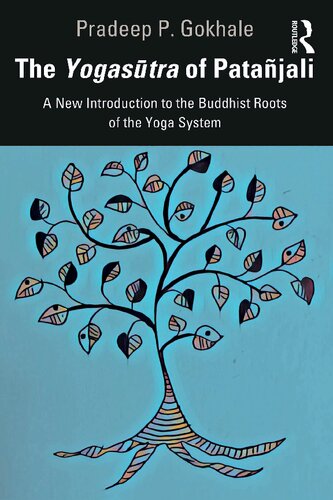

Most ebook files are in PDF format, so you can easily read them using various software such as Foxit Reader or directly on the Google Chrome browser.
Some ebook files are released by publishers in other formats such as .awz, .mobi, .epub, .fb2, etc. You may need to install specific software to read these formats on mobile/PC, such as Calibre.
Please read the tutorial at this link. https://ebooknice.com/page/post?id=faq
We offer FREE conversion to the popular formats you request; however, this may take some time. Therefore, right after payment, please email us, and we will try to provide the service as quickly as possible.
For some exceptional file formats or broken links (if any), please refrain from opening any disputes. Instead, email us first, and we will try to assist within a maximum of 6 hours.
EbookNice Team

Status:
Available4.4
23 reviewsThis book offers a systematic and radical introduction to the Buddhist roots of Pātañjala-yoga, or the Yoga system of Patañjali. By examining each of 195 aphorisms (sūtras) of the Yogasūtra and discussing the Yogabhāṣya, it shows that traditional and popular views on Pātañjala-yoga obscure its true nature. The book argues that Patañjali’s Yoga contains elements rooted in both orthodox and heterodox philosophical traditions, including Sāṅkhya, Jaina and Buddhist thought.
With a fresh translation and a detailed commentary on the Yogasūtra, the author unearths how several of the terms, concepts and doctrines in Patañjali’s Yoga can be traced to Buddhism, particularly the Abhidharma Buddhism of Vasubandhu and the early Yogācāra of Asaṅga. The work presents the Yogasūtra of Patañjali as a synthesis of two perspectives: the metaphysical perspective of Sāṅkhya and the empirical–psychological perspective of Buddhism. Based on a holistic understanding of Yoga, the study explores key themes of the text, such as meditative absorption, means, supernormal powers, isolation, Buddhist conceptions of meditation and the interplay between Sāṅkhya and Buddhist approaches to suffering and emancipation. It further highlights several new findings and clarifications on textual interpretation and discrepancies.
An important intervention in Indian and Buddhist philosophy, this book opens up a new way of looking at the Yoga of Patañjali in the light of Buddhism beyond standard approaches and will greatly interest scholars and researchers of Buddhist studies, Yoga studies, Indian philosophy, philosophy in general, literature, religion and comparative studies, Indian and South Asian Studies and the history of ideas.